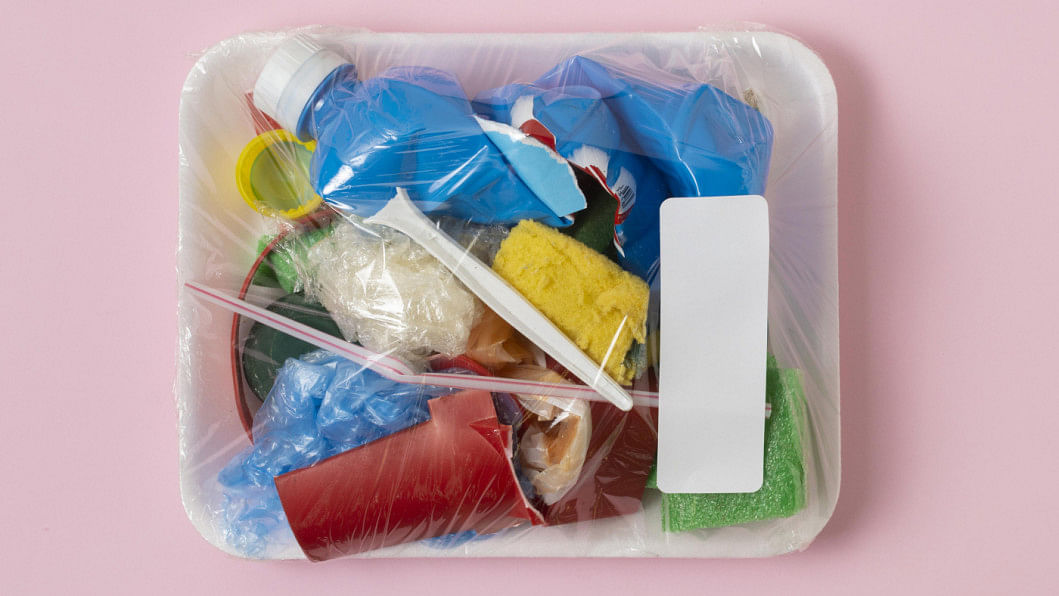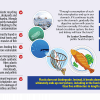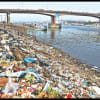Plastic dependency: The environmental cost of food delivery in Bangladesh

Over the last couple of years, cities in Bangladesh have seen a rapid growth in online food delivery services. From local catering houses to global fast food chains, everything is a matter of a tap away. However, the unchecked use of single-use plastic in food delivery is a matter of concern.
Multiple layers of plastic, including containers, cutlery, sauce sachets, and plastic bags, are used in packaging during the delivery of the meals. In Dhaka, thousands of orders for daily meals are a usual scenario. Food packed in plastic package contributes to worsening environmental degradation. According to Somoy TV, 30,000 tonnes of solid waste are generated on a daily basis in the country, where 10 percent is single-use plastic.
The business model of food delivery platforms primarily relies on the use of plastic, particularly cheap plastic containers, to minimise costs. Few businesses have experimented with eco-friendly paper boxes or biodegradable packaging, which are associated with high production costs and limited suppliers. Moreover, the current business regulations in the country do not include special incentives for entrepreneurs who offer food in eco-friendly paper boxes or biodegradable packaging.
If we look at the global lesson, we see that India and Indonesia have already piloted the "Green Delivery" business model for food delivery with biodegradable packaging. In contrast, Bangladesh has made very little progress in regulating single-use plastic in the digital food economy. The country declared a complete ban on using polybags in 2002. However, single-use plastic was not included in the ban. The legal vacuum encouraged the growth of the single-use plastic sector.
However, can biodegradable alternatives cover the demand? Some socially responsible businesspeople have started using biodegradable packaging made from jute, bagasse, and cornstarch. This initiative is considered an emerging market in Bangladesh, but scaling up is a challenge due to prices that are several times higher than traditional plastic packaging. There is also a lack of government subsidies, tax relief, and public-private partnerships.
The government, private sector, and consumers altogether need to put a coordinated effort to address this issue. The government can review the existing laws and regulations. It should also create accountability for businesses by imposing mandatory reporting to the relevant departments. Incentives and lower taxation can promote biodegradable packaging in food delivery. Food delivery platforms should introduce themselves as socially responsible businesses by providing biodegradable packaging and educating other franchises about sustainable practices. People's consumption habits need to be shifted towards green delivery. The Bangladesh Bank nowadays encourages start-up businesses targeting the young generations. They can provide incubation and investment support for affordable biodegradable packaging.
The food delivery in our cities reflects the digital food economy progress as well as the urban transformation. It is now high time to check the growth of the single-use plastic sector to avoid environmental degradation and promote public health. The path is not easy, but redefining sustainability is crucial, considering that it is an integral part of how we eat, deliver, and live.
Md. Ziaul Hoque is a PhD fellow at the University of Chittagong and a development practitioner.
Views expressed in this article are the author's own.
Follow The Daily Star Opinion on Facebook for the latest opinions, commentaries and analyses by experts and professionals. To contribute your article or letter to The Daily Star Opinion, see our guidelines for submission.

 For all latest news, follow The Daily Star's Google News channel.
For all latest news, follow The Daily Star's Google News channel. 







Comments